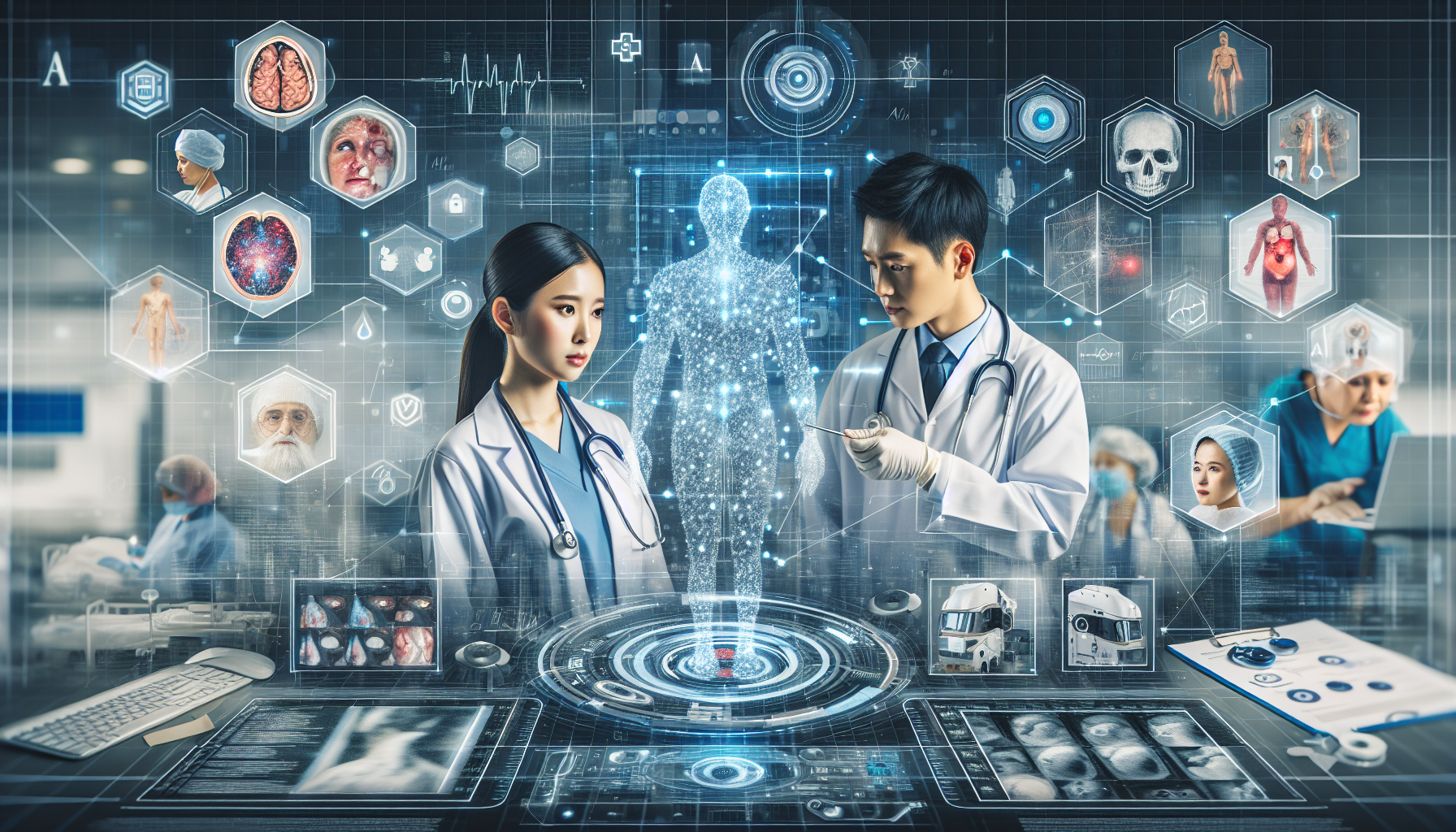The Impact of AI in Healthcare: Diagnosis and Beyond
Artificial Intelligence (AI) is reshaping the landscape of healthcare, offering unprecedented advancements in clinical diagnosis, treatment planning, patient management, and operational efficiency. This transformative technology leverages vast amounts of data to enhance patient care and streamline processes, making it essential to explore its implications in various facets of healthcare.
AI in Diagnostic Procedures
One of the most significant impacts of AI in healthcare is its application in diagnostic procedures, where it can significantly improve accuracy and efficiency. Traditional diagnostic methods often require extensive time and resources, whereas AI algorithms can analyze medical images faster and with promising results.
Radiology and Imaging
AI has made substantial inroads in radiology, where AI-powered tools assist radiologists in interpreting medical images. For instance, deep learning algorithms can identify anomalies in X-rays, CT scans, and MRIs with remarkable accuracy. A notable example is Google’s DeepMind, which has demonstrated proficiency in detecting eye diseases and breast cancer through image analysis, achieving results comparable to expert radiologists.
Pathology
In pathology, AI applications enhance the interpretation of biopsy samples. Machine learning models trained on vast databases of histopathological images can aid pathologists in identifying cancerous cells with greater precision, reducing the chance of human error. The integration of AI in pathology results in quicker diagnoses, which is critical in oncology where timely interventions significantly impact patient outcomes.
Personalized Medicine
AI empowers personalized medicine, a paradigm shift that tailors treatment to individual patients based on their genetic makeup, lifestyle, and other factors. AI systems analyze genomic data to identify specific mutations or markers in patients, allowing clinicians to customize therapies.
Genomic Data Analysis
The advent of AI in genomic research allows for faster data processing and insights. Tools like IBM Watson Genomics assist physicians in predicting responses to treatments based on a patient’s genetic profile, significantly enhancing treatment effectiveness. This personalized approach leads to a higher likelihood of successful outcomes, particularly in complex diseases like cancer.
Predictive Analytics in Patient Care
Another transformative aspect of AI in healthcare is its ability to utilize predictive analytics to foresee adverse events and improve patient management. By analyzing historical data, AI systems can identify patterns that lead to patient deterioration, allowing healthcare providers to intervene proactively.
Patient Risk Identification
AI algorithms can analyze electronic health records (EHR) to predict which patients are at risk of developing complications or requiring hospitalization. Tools that utilize machine learning can flag high-risk patients for critical conditions such as sepsis or heart failure, enabling preemptive care strategies that can save lives and reduce healthcare costs.
Readmission Prevention
AI can also play a vital role in reducing hospital readmissions. Predictive models assess patient data, including discharge details, comorbid conditions, and social determinants of health, to identify individuals at high risk for readmission. With this information, healthcare teams can conduct follow-ups, streamline discharge processes, and provide additional resources to at-risk patients.
Enhanced Operational Efficiency
The impact of AI extends beyond clinical applications, driving operational efficiencies within healthcare organizations. Administrative tasks, which consume time and resources, can be automated through AI solutions, allowing providers to focus more on patient care.
Intelligent Scheduling
AI-driven scheduling systems optimize appointment bookings, significantly reducing no-show rates and maximizing resource utilization. These systems analyze patient data and behavior patterns to predict the best times for appointments, leading to improved patient satisfaction and enhanced practice revenue.
Resource Allocation
AI aids in more effective resource allocation by analyzing patient flow and demand forecasts. Hospitals can utilize AI tools to predict peak times for admissions, adjust staffing accordingly, and ensure that resources are available when needed. This operational foresight minimizes waste and enhances the patient experience.
AI and Telemedicine Integration
The COVID-19 pandemic has accelerated the adoption of telemedicine, and AI has been instrumental in enhancing virtual care. AI-driven chatbots and virtual health assistants provide preliminary consultations, symptom analysis, and health management tips, making healthcare more accessible.
Patient Engagement
AI enhances patient engagement through interactive interfaces that guide users in managing their health. These tools can remind patients to take medications, schedule follow-ups, and provide personalized health information, resulting in improved adherence to treatment plans and better health outcomes.
Remote Monitoring
AI-powered devices can monitor patients’ vital signs in real-time and alert healthcare providers to any significant changes, facilitating remote patient management. Wearables that track heart rate, glucose levels, and other metrics can share data with healthcare systems, ensuring timely interventions without the need for in-person visits.
Ethical Considerations and Challenges
As AI continues to evolve in healthcare, several ethical considerations and challenges surface. Data privacy remains a primary concern, as the reliance on vast datasets raises questions about patient confidentiality. Ensuring that AI systems comply with regulations, such as HIPAA in the U.S., is vital to maintaining trust in digital health technologies.
Moreover, there is the issue of algorithmic bias, where AI systems may produce skewed results if trained on non-representative datasets. This bias can lead to disparities in healthcare access and quality. It’s critical to address these issues through inclusive data collection and thorough testing of AI algorithms across diverse populations.
Future Prospects
The future of AI in healthcare promises further innovations that will enhance diagnostics, treatments, and overall patient care. Advances in natural language processing are expected to lead to more intuitive interactions between clinicians and AI systems, enabling a seamless integration of AI into clinical workflows.
Collaboration with Human Experts
AI should complement—not replace—human expertise in healthcare. The synergy between AI capabilities and human judgment offers the greatest potential for enhancing patient care. As clinicians embrace these technologies, the role of AI will evolve to become an integral part of the healthcare ecosystem, ultimately improving health outcomes and operational efficiency across the board.
Through continuous research, investment, and collaboration, the healthcare industry can harness AI’s full potential, paving the way for healthier communities and revolutionizing how patient care is delivered. The ongoing evolution of AI technology promises to yield transformative benefits in healthcare, benefiting both patients and providers alike.


